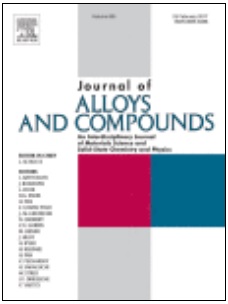This study describes the facile synthesis of ZnO nanolayers by the sol-gel process and evaluates their subsequent surface passivation with ZnS by gas-phase sulfidation. The ZnO nanolayers were formed by a spin-coating technique following calcination in air in the temperature range 500–900 °C to obtain a polycrystalline wurtzite structure of ZnO. The layer thickness was optimized by adjusting the spin-coating speed and concentration of polymer in the starting solution. The continuity and formation of the films was influenced by ZnO crystal size, which was found to increase with increasing calcination temperature. The ZnO nanostructure was covered by a thin ZnS layer in a one-step passivation process carried out at room temperature in the presence of H2S. This thin coating of ZnS was found to have a sphalerite structure. The cathodoluminescence intensity of near-band-gap emission of the coated crystal was one order of magnitude greater following the passivation of surface defects.

